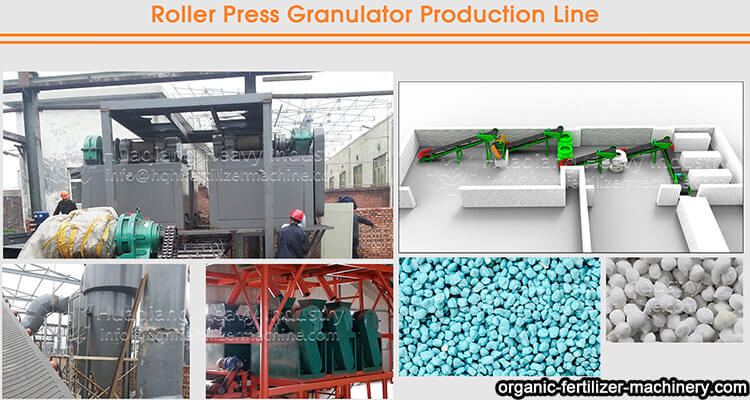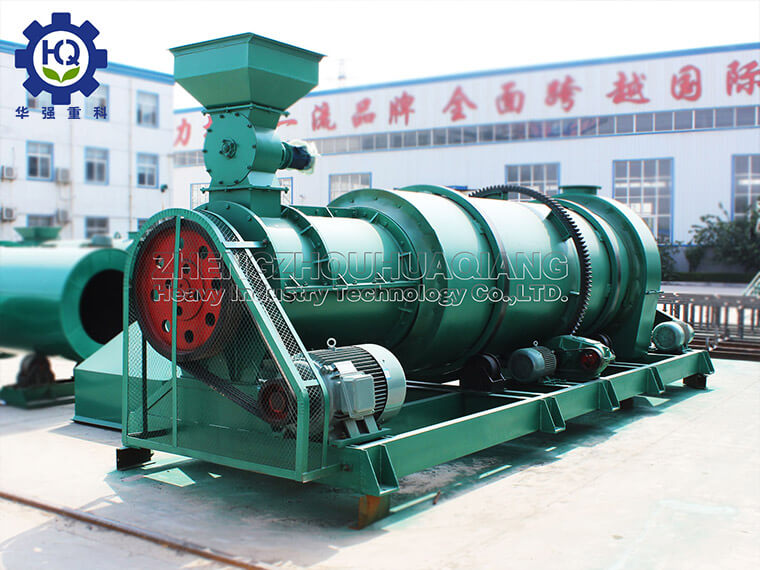At present, the commonly used utilization of farm manure is as follows: firstly, composting. Mainly, farmers use weeds, waste, and crop straw to accumulate compost during the hot season. The second is manure (excluding biogas residue and biogas slurry fertilizer). The third is biogas residue and biogas slurry. The main raw materials for biogas digesters are manure from livestock and poultry farming such as pigs, cows, and chickens, as well as waste from farms. Biogas is the main product, and biogas residue and biogas slurry are high-quality organic fertilizers. Biogas residue can be used as base fertilizer or topdressing. Biogas slurry is used for foliar fertilizer spraying. Biogas fertilizer is a pollution-free organic fertilizer in agricultural production, which can also control pests and has significant fertilizer effects, and is popular among farmers. The fourth is soil and miscellaneous fertilizers. Mainly used by farmers to clean courtyards, clean toilets, burn coal for cooking and heating, as well as urban household waste. After treatment, it can be used as fertilizer, promoting the effective utilization of resources..jpg)
The detailed production process of organic fertilizer is as follows:
1. Fermentation tipping machine: After mixing the raw materials, the raw materials are flipped during the fermentation process to ensure full and uniform fermentation of the raw materials;
2. Semi wet material crusher: finely crush the fermented raw materials to achieve the required particle size before granulation;
3. Horizontal mixer: Add the crushed raw materials to the corresponding auxiliary materials for uniform mixing;
4. Organic fertilizer granulator: The stirred raw materials are granulated, and there are various models of granulators. Reasonable selection is made based on the original characteristics and required particle varieties;
5. Drying machine: The prepared particles flow into a rotary dryer, drying their original moisture content below 15% to increase their particle strength and facilitate storage;
6. Cooling machine: The dried particles flow into the cooling machine, quickly cooling and shaping;
7. Drum screening machine: There may be a portion of oversized or undersized unqualified particles in the produced particles. The screening machine is used to screen them out, and the unqualified particles are returned to the corresponding process to remake the particles. Qualified particles flow into the next process;
8. Coating machine: Use the coating machine to evenly spray a layer of coating agent on the periphery of the particles, which can effectively supplement the trace elements of the product, improve the brightness and fullness of the product;
9. Automatic packaging machine: Use an automatic quantitative packaging machine to package finished particles into bags and transport them to the finished product workshop, completing all processing processes.
By utilizing these organic fertilizer production equipment, organic rich raw materials can be processed into ideal organic fertilizers for sale, thereby earning profits. The raw materials for producing organic fertilizers come from a wide range of sources, such as various livestock and poultry manure, urban sludge, animal and plant residues, etc. These raw materials are rich in organic matter, nitrogen, phosphorus, potassium, and other nutrients for crop production, and the purchase price is low. Organic fertilizers are suitable for crops such as wheat, rice, peanuts, fruits and vegetables. They can improve crop quality, improve fruit quality, and benefit human health. They are the best choice of fertilizers for pollution-free green food cultivation.


.jpg)


.jpg)

.jpg)
.jpg)